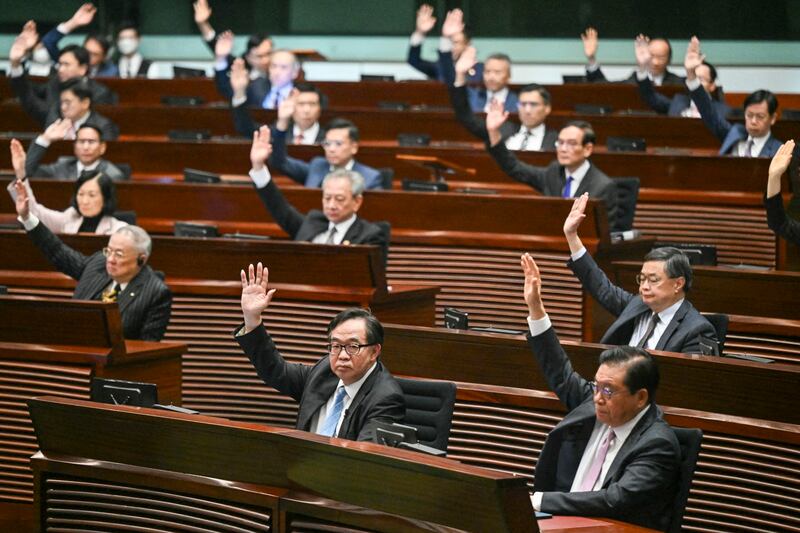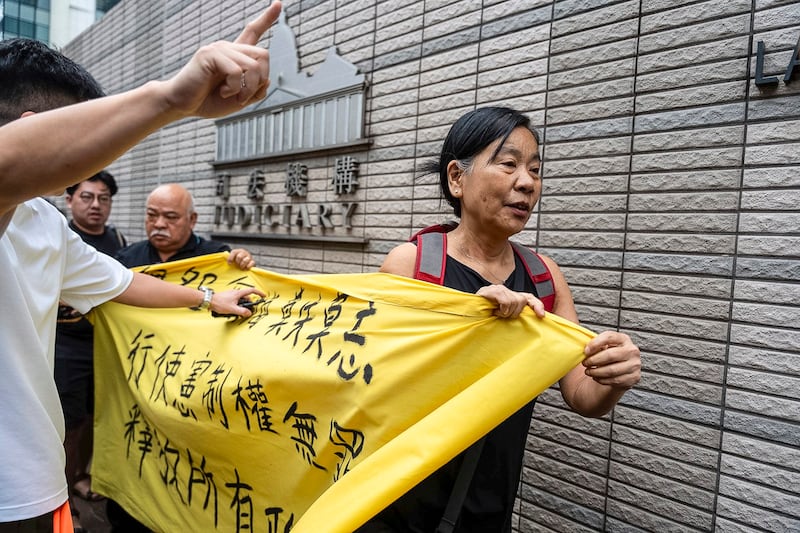The United States will impose visa bans against unnamed Hong Kong officials in response to Thursday's guilty verdicts against 14 democracy activists on "subversion" charges, the State Department said Friday.
The Chinese city's High Court found 14 leading pro-democracy activists guilty of subversion under the tough new National Security Law, which was passed into law in March, following a 118-day trial for 16 protesters who pleaded "not guilty" after arrests in 2021.
In a statement, State Department spokesman Matthew Miller said the United States was “deeply concerned” by the guilty verdicts for the pro-democracy activists and called for Hong Kong authorities to “immediately release these unjustly detained individuals.”
“The defendants were subjected to a politically motivated prosecution and jailed simply for peacefully participating in political activities protected under the Basic Law of Hong Kong,” Miller said, referring to the city’s governing law since the British handover in 1997.
Miller said the United States was “taking steps” to implement sanctions on Hong Kong and Chinese officials responsible for the verdict under Section 212(a)(3)(C) of the U.S. Immigration and Nationality Act, which deals with people ineligible for entry into the United States.

The statement does not identify which Hong Kong officials would be targeted, and the State Department has a policy against commenting directly on the visa status of individuals due to privacy concerns.
The 14 activists found guilty on Thursday were part of a group of 47 protesters who were arrested by Hong Kong police in 2021, which drew international condemnation, including from U.S. lawmakers.
Of the 47, 31 pleaded guilty to the charge and are still awaiting sentencing on the charges that under March’s tough new laws carry up to life imprisonment. Two were acquitted on Thursday.

The sanctions were issued a day after U.S. Deputy Secretary of State Kurt Campbell met with his Chinese counterpart, Vice Foreign Minister Ma Zhaoxu, for talks at the State Department in Washington.
According to a readout issued by the U.S. side on Friday, the two officials held a “candid and constructive discussion” on a range of topics “including areas of difference and areas of cooperation.”
Campbell brought up China’s “destabilizing actions around Taiwan,” according to the readout, as well as U.S. concerns about Beijing’s alleged ongoing “support to Russia’s defense industrial base.”
He also raised America’s concerns about human rights abuses in China, “including in Hong Kong,” the readout said.
Edited by Malcolm Foster.
